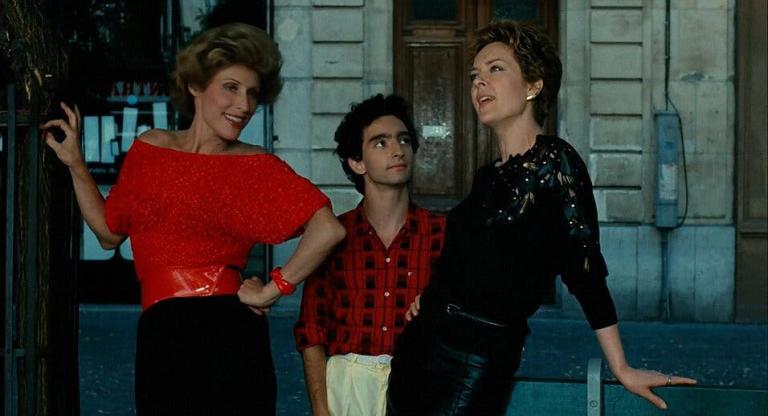Shinji Somai’s signature long takes are a little different in Love Hotel, his 1985 film about the long hangover from a violent sexual encounter. Usually, these more closely resemble those of his predecessor Tatsumi Kumashiro—a prolific master of the softcore Roman Porno format, and the greatest Japanese director of the 1970s. In Kumashiro’s films the long take, hand in hand with sex, leaps over or breaks down physical barriers, reveals and reinforces social interconnection, opens up the world.
In Love Hotel, it shuts it out. Each of the film’s shots tends to become a microcosm unto itself, a vacuum that attracts and swallows everything in reach, from the characters to the decor. Most take place in closed spaces—cars, apartments, and offices—that the camera buzzes about, as trapped as the housefly that features in one early scene. These shots circle, obsess and hunt, reflecting Nami (Noriko Hayami) and Tetsuro’s (Minori Terada) terrible, desperate need to solve the riddle of the fateful night they spent together. But they also linger, hypnotized, in bedrooms or a taxi backseat, and find mysteries somehow clarified, if only for a moment, in the intimacy the shots themselves are a part of. Sex, in the film, is the black hole that the camera repeatedly gets caught in, a little world that makes the greater one disappear, or that contains it.
The recurring presence of doubles and reflections fold space further in on itself. But if there’s the possibility of redemption for these characters, it is exactly here. Tetsuro tells Nami, of the moment he chose to turn his life around, “The expression on your face was like a mirror,” and it is Nami’s encounter with another woman, mirrored in the rigid geometries of a huge concrete staircase, that offers her some chance of escape from the likely suicidal cycle she’s been doomed to.
Redemption has both a moral and an economic valence in Love Hotel. Tetsuro’s despair about the debt he and his loan sharks are swimming in drags him toward sexual violence and suicide. Nami pays the hotel bills for her rendezvous with her boss, role-playing a position of economic superiority in the hope of finding her self-worth. Tetsuro and Nami’s financial troubles, far from mere earthly concerns, are matters of life and death, dizzying traps opening onto imponderables. Even at his most existential, Somai is always a materialist.
He is also very tender. For all of this world’s harshness, the film is flecked with moments of inexplicable and unnecessary beauty: drinks prepared for a lover, a rainstorm that murmurs unseen, two songs by Mamoe Yamaguchi playing on the radio.
Love Hotel screens tonight, April 10, at Metrograph as part of the series “Pinku: The Return of Roman Porno.”



